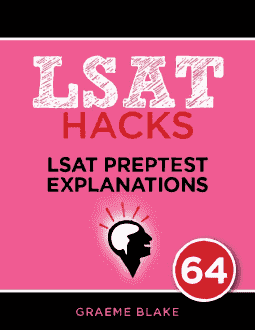QUESTION TEXT: Editorial: The town would not need to spend as much as…
QUESTION TYPE: Role in Argument
CONCLUSION: The voluntary recycling system is better.
REASONING: A forced recycling system would make some people sort trash, but cause many others to refuse out of resentment. The two systems cost the same.
ANALYSIS: This argument would be stronger if we knew how many people would sort trash under each system. “Some” and “many” are vague words.
But that doesn't matter, we're just supposed to figure out the role of the first sentence. It gives context, by telling us why we should care whether people sort their trash. It explains why some people want to force people to sort their trash: the town would save money.
___________
- The editorial never casts doubt on this statement. Search all you want, it's not there.The first sentence is presented as fact.
- CORRECT. Normally, we wouldn't want to cause resentment by forcing people to sort their trash. But if it saves money, it might be a good idea.
- Not at all. The editorial implies that a voluntary program might convince just as many people to sort their trash. A forced program would make make people resist out of resentment.
- The sentence weakens the argument; it's not a premise. The argument would be even stronger if sorting didn't save the town money. Then it's hard to see why we should force people to sort their trash.
- No. There are no words like “for”, “since” or “as” that show the first line is the conclusion. It's just a fact. The conclusion is that we shouldn't force people to sort their trash.


Leave a Reply